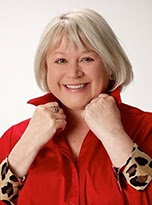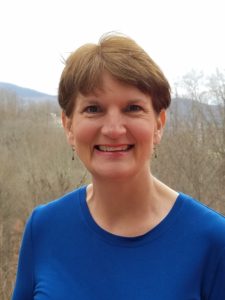A Note from the Chair
We’re more than halfway through the summer, and the workshop committee is shifting to high gear to get ready for October! We have an amazing lineup of knowledgeable speakers and agents, a bookstore, and on Saturday night, a Meet and Greet at the Double Tree, downtown. I hope you take advantage to rub elbows with presenters, agents and other attendees.
I truly believe this conference is the best bang for your writer-buck that you’ll find anywhere. Please tell your writer friends – all you need to do is forward this newsletter, or send them to our website:
https://permianbasinwritersworkshop.org/
Oh, and don’t forget, you have the opportunity to pitch with one agent included with your registration, but if you’d like to pitch to a second agent, you can register for that on the website for just $35.
Looking forward to meeting y’all in October!
Laura Drake,
PBWW Chair |
|
Speaker Spotlight: Manning Wolfe
|
|
|
ˈplājəˌrizəm/

Plagiarism is a noun defined as taking someone else’s work and/or ideas and passing them off as one’s own.
The world of books, music, and film is full of examples of plagiarism and lawsuits involving stealing of ideas, photos, and sometimes full sentences, paragraphs, or entire works.
Some of the most famous examples of plagiarism are listed below. We’ll be discussing plagiarism, copyright, and other legal issues for authors at the 2018 Permian Basin Writer’s Workshop in Midland.
Dan Brown, the author of The Da Vinci Code, was sued by historians Michael Baigent and Richard Leigh, who claimed Brown had plagiarized central themes from their book. However, their lawsuit was unsuccessful. Author Lewis Perdue also sued Brown for plagiarism of his books The Da Vinci Legacy and Daughter of God, but was also unsuccessful.
James Frey, author of the memoir A Million Little Pieces, which chronicled his dramatic descent into alcohol and crack addiction at the age of twenty-three, and his subsequent recovery in rehab, was exposed. Many of the events in the memoir were later found to have been exaggerated or entirely made up after his appearance on The Oprah Winfrey Show, including his alleged experience with root canals and whether his girlfriend, who died by suicide in his memoir, even existed at all. A six-week long investigation led Frey to finally admit that he had fabricated several portions of his memoir, and it is now being marketed as a semi-fictional novel.
Jane Goodall, a scientist famous for her lifetime work with chimpanzees in Tanzania, was preparing to release a new book entitled Seeds of Hope. However, when review copies were sent out to various papers, Steven Levingston at the Washington Post noticed that the book contained several passages used without attribution. The Daily Beast said it found proof that even more passages were lifted. Goodall apologized for the plagiarism and blamed “chaotic note taking” for the problems. The book ended up being postponed to address the plagiarism issues and was released a year later.
In 1955 Johnny Cash recorded the song “Folsom Prison Blues”, the tale of a convicted murderer being tortured by the sound of a passing train while incarcerated. It was released that year and rereleased in 1968 after he performed the song at Folsom Prison. It was proved that Cash had lifted the melody and much of the lyrics from a 1953 song “Crescent City Blues” by Gordon Jenkins, about a narrator hoping to get out of a small Midwest town. Though Cash had changed the song fairly drastically, turning it into a piece about regret and imprisonment, the plagiarism resulted in a lawsuit, which was quickly settled with Cash paying $75,000 to put the issue to rest (equal to about $660,000 today).
Doris Kearns Goodwin, a former Lyndon Johnson aide, was accused of using phrases from other books in her own work, including the popular The Fitzgeralds and The Kennedys. Goodwin claimed it was accidental and withdrew unsold copies of the book to correct it.
Stephen Ambrose, the author of the books that became the beloved Band of Brothers miniseries, was accused of multiple counts of plagiarism, lifting entire passages from another book. Then, it was revealed that other books of his suffered similar problems: whole sentences were lifted from other books. Ambrose told the New York Times that he was “not out there stealing other people’s writings.”
Jayson Blair was a young reporter at The New York Times before it was revealed in 2003 that he fabricated quotes, sources and datelines. Blair even submitted falsified receipts for reimbursement to back up his falsified datelines. The Times published a front-page piece on May 11, 2003 explaining what had happened. Blair was 27.
Alex Haley’s book Roots, which won a Pulitzer Prize, follows several generations of an African-American family and was turned into a famous miniseries. However, author Harold Courlander sued Haley in 1978 and said Haley lifted parts of “Roots” from Courlander’s novel, “The African.” The two reached an out-of-court settlement.
Harlan Ellison, known for his work in science fiction sued James Cameron for plagiarizing his written episode for the series “The Outer Limits”. The episode was called “Demon with a Glass Hand”, the plot was of a cyborg soldier in human disguise who happened to be from the future and was sent back in time. In the end Orion pictures settled with Ellison and he had a hefty payout.
Sylvester Stallone’s debut film, Rocky was no original work either. Based on the life of boxer Chuck Wepner, Sly was sued for not paying royalties and acknowledging Chuck in the credits. Sly admits to writing the script after watching video of Chuck fight Ali for two weeks. Chuck sued for damages and had an undisclosed settlement.
Note: Often, authors hear something and later unconsciously use it in their work, but when exact phrases and entire concepts are utilized, it’s difficult to attribute that to mistake or parallel development. Avoid some of these pitfalls and join us on October 13 & 14, 2018 for further discussion of legal issues that are useful in publishing.
 Austin attorney, Manning Wolfe, Manning is an award-winning author and attorney residing in Austin, Texas, writes cinematic-style, smart, fast-paced thrillers with a salting of Texas bullshit. The latest in her series, Green Fees, features Austin Lawyer, Merit Bridges. As a graduate of Rice University and the University of Texas School of Law, Manning’s experience has given her a voyeur’s peak into some shady characters’ lives and a front row seat to watch the good people who stand against them. www.manningwolfe.com |
|

Jeanie Loiacono
CEO/President of Loiacono Literary Agency
Agent, Editor
What I am interested in:
Fiction – commercial, historical, literary, military, women’s
Nonfiction – commercial (self-help, pop-culture, health/medical), historical, memoirs, military
What I am not interested in: erotica, foreign language translations, horror, LGBTQ, other worlds with names and places that are difficult to pronounce, or works with excess profanity and vulgarity.
A facilitator of dreams, Jeanie Loiacono represents over eighty authors. Her forte is mystery, romance, thrillers, historical/military/southern fiction, and all quality fiction/nonfiction. Her passion is to see her authors succeed.
Jeanie Loiacono Events What a query means to me…South Carolina Writers Workshop
Jeanie has been involved with the literary arts all her life. Starting at a young age, her sister, Barbara, taught her to read and write before she started school. It was never enough to be read to as a child, she had to learn to read so she could go to “the land far, far away” on her own.. She discovered the magic of escaping through the written word and never looked back.
“There is nothing more rewarding than to hold one of my author’s books and know I helped bring it to fruition. I am so blessed and privileged to be able to work with some of the most talented writers in the world.
“What use is living without giving? It is all about making memories. |
|
|
The Permian Basin Writers Workshop is brought to you by:
Bookies meetings are informal and low-key, but informative and purposeful. Typically, we have a guest speaker with tips on some aspect of writing or publishing. Dress is casual, with no admission charge.
Other member benefits include:
* Monthly newsletter
* Annual Writers Workshop
* Social media support
* Shared marketing opportunities
* Feedback from pros
* Industry connections
* Website
* Fun social events
All this and more, for just $35 a year. To learn more, visit our website, or visit a meeting. |
|
|
|
|